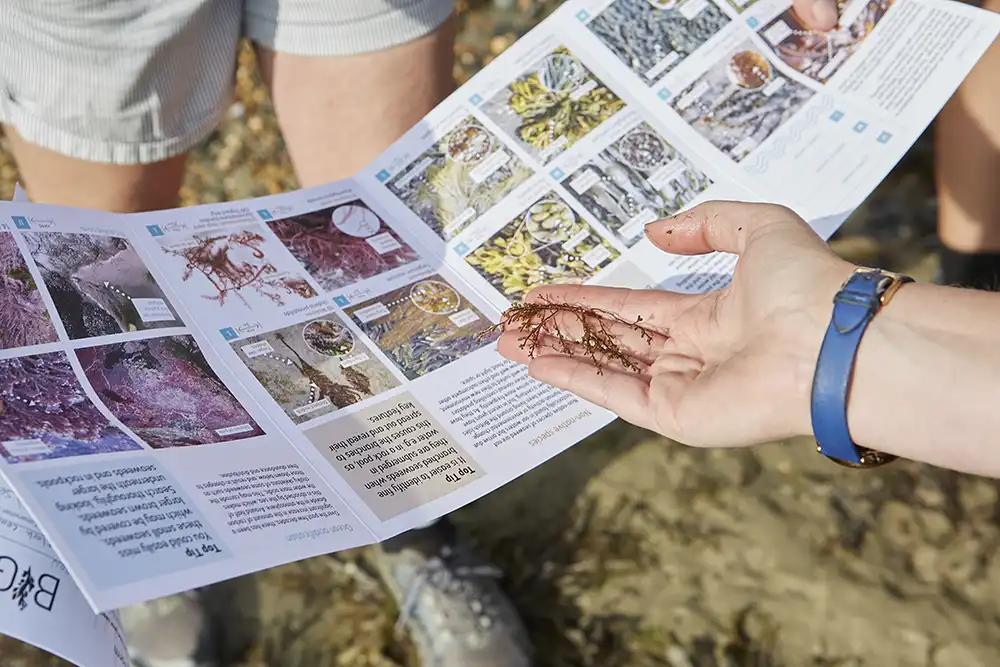
The Marine Conservation Society and Natural History Museum’s Big Seaweed Search Week returns from Monday 29 July until 4 August, and the two organisations are calling on beachgoing citizen scientists to join in.
‘Seaweed plays a crucial role in marine ecosystems and helps to mitigate the effects of climate change, but we want to know more about it.’ said Hannah Bester, Volunteering & Citizen Science Senior Manager at the Marine Conservation Society.
‘The more data we gather through our Big Seaweed Search, the more knowledge and influence we have to protect our ocean, and seaweeds, for the future.
‘It’s easy for anyone to get involved in Big Seaweed Search Week – you don’t need to be a seaweed expert or live near the sea, just one visit to the coast will do. Seaweeds can tell us a lot about wider ocean and environmental conditions, and the information supports vital scientific research.’

There are more than 650 species of seaweed found around the UK, but the Big Seaweed Search Week is focused on just 14 of the most common. Information gathered during the search will help to inform scientists about the distribution and types of seaweed around the UK, and collect long-term data to help revive and protect the nation’s marine life and measure the impact of environmental changes on the ocean.
‘The Big Seaweed Search has already had big impacts scientifically, with data feeding into the UK Red List for seaweed species of conservation concern, and an academic paper sharing the results so far with the global research community,’ said Lucy Robinson, Community Science Manager at the Natural History Museum.
‘It’s also inspired similar projects in other countries including South Georgia and Mexico. It’s amazing to collaborate with community scientists who care about healthy seas as much as we do.’
Anybody can take part in the Big Seaweed Search Week and it’s easy to get involved. MCS has training videos and downloadable resources available, including a guide which helps beachgoers identify the seaweed species they’re likely to spot and explains how to report their finds.
The survey can be carried out as an individual or in groups, and information can be submitted on any connected device.

How to get involved with the Big Seaweed Search Week
- Register to take part and download your guide and recording form at www.bigseaweedsearch.org
- Choose your 5m stretch of coastline to survey
- Fill in your survey form
- Take LOTS of clear, close-up photographs for your survey to be accepted
- Submit your survey through www.bigseaweedsearch.org



